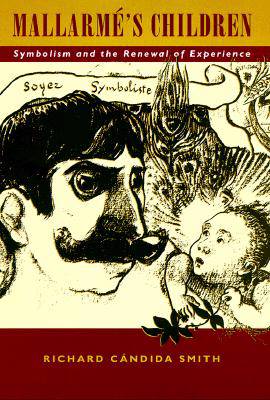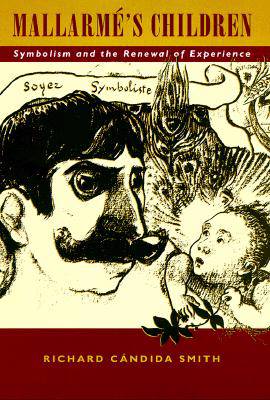
- Afhalen na 1 uur in een winkel met voorraad
- Gratis thuislevering in België vanaf € 30
- Ruim aanbod met 7 miljoen producten
- Afhalen na 1 uur in een winkel met voorraad
- Gratis thuislevering in België vanaf € 30
- Ruim aanbod met 7 miljoen producten
Zoeken
Mallarmé's Children
Symbolism and the Renewal of Experience
Richard Cándida Smith
Hardcover | Engels
€ 106,95
+ 213 punten
Omschrijving
In a narrative gracefully combining intellectual and cultural history, Richard Cándida Smith unfolds the legacy of Stéphane Mallarmé (1842-1898), the poet who fathered the symbolist movement in poetry and art. The symbolists found themselves in the midst of the transition to a world in which new media devoured cultural products and delivered them to an ever-growing public. Their goal was to create and oversee a new elite culture, one that elevated poetry by removing it from a direct relationship to experience. Instead, symbolist poetry was dedicated to exploring discourse itself, and its practitioners to understanding how language shapes consciousness.
Cándida Smith investigates the intellectual context in which symbolists came to view artistic practice as a form of knowledge. He relates their work to psychology, especially the ideas of William James, and to language and the emergence of semantics. Through the lens of symbolism, he focuses on a variety of subjects: sexual liberation and the erotic, anarchism, utopianism, labor, and women's creative role. Paradoxically, the symbolists' reconfiguration of elite culture fit effectively into the modern commercial media. After Mallarmé was rescued from obscurity, symbolism became a valuable commodity, exported by France to America and elsewhere in the market-driven turn-of-the-century world. Mallarmé's Children traces not only how poets regarded their poetry and artists their art but also how the public learned to think in new ways about cultural work and to behave differently as a result.
Cándida Smith investigates the intellectual context in which symbolists came to view artistic practice as a form of knowledge. He relates their work to psychology, especially the ideas of William James, and to language and the emergence of semantics. Through the lens of symbolism, he focuses on a variety of subjects: sexual liberation and the erotic, anarchism, utopianism, labor, and women's creative role. Paradoxically, the symbolists' reconfiguration of elite culture fit effectively into the modern commercial media. After Mallarmé was rescued from obscurity, symbolism became a valuable commodity, exported by France to America and elsewhere in the market-driven turn-of-the-century world. Mallarmé's Children traces not only how poets regarded their poetry and artists their art but also how the public learned to think in new ways about cultural work and to behave differently as a result.
Specificaties
Betrokkenen
- Auteur(s):
- Uitgeverij:
Inhoud
- Aantal bladzijden:
- 328
- Taal:
- Engels
Eigenschappen
- Productcode (EAN):
- 9780520218284
- Verschijningsdatum:
- 14/02/2000
- Uitvoering:
- Hardcover
- Formaat:
- Genaaid
- Afmetingen:
- 161 mm x 237 mm
- Gewicht:
- 752 g

Alleen bij Standaard Boekhandel
+ 213 punten op je klantenkaart van Standaard Boekhandel
Beoordelingen
We publiceren alleen reviews die voldoen aan de voorwaarden voor reviews. Bekijk onze voorwaarden voor reviews.











